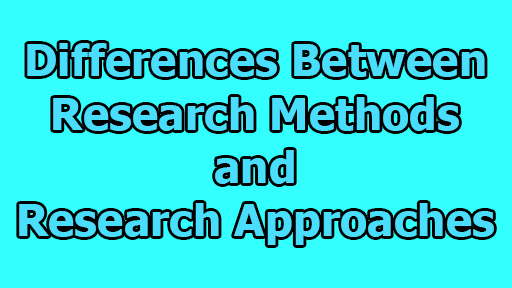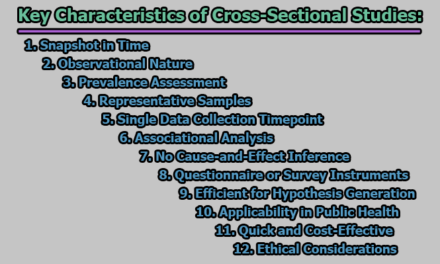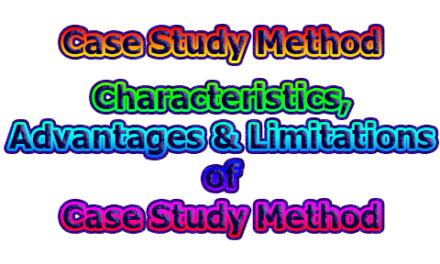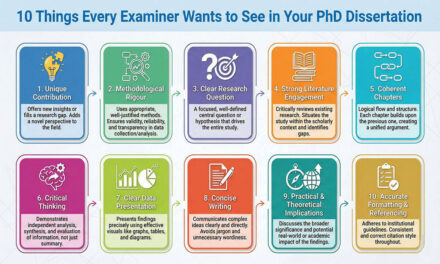Differences between Research Methods and Research Approaches:
Research in any field involves a systematic investigation aimed at discovering new knowledge or validating existing theories. Two fundamental aspects of research are the methods employed and the overall approach taken. While research methods refer to the specific techniques used to collect and analyze data, research approaches encompass broader frameworks guiding the entire research process. Understanding the distinctions between research methods and research approaches is crucial for conducting rigorous and effective research. Here, we are going to know the differences between research methods and research approaches.
Research Methods:
Meaning: Research methods refer to the specific techniques or procedures used to collect and analyze data in a research study. These methods are the practical steps employed by researchers to gather information, test hypotheses, or answer research questions.
Examples: Qualitative research methods include interviews, focus groups, and content analysis. Quantitative research methods include surveys, experiments, and statistical analysis.
Research Approaches:
Meaning: Research approaches encompass broader philosophical or theoretical frameworks that guide the overall strategy of the research. They provide a general orientation or perspective on how researchers conceptualize and conduct their investigations.
Examples: Common research approaches include positivism, interpretivism, critical theory, and pragmatism. These approaches influence the overall design, methodology, and worldview of a research study.
Key Differences:
| No. | Research Methods | Research Approaches |
| 1 | Specific techniques for data collection, e.g., surveys, experiments. | Overall framework guiding the research process. |
| 2 | Methods are categorized as qualitative (e.g., interviews, observations) or quantitative (e.g., statistical analysis). | Approaches encompass qualitative, quantitative, or mixed methods. |
| 3 | Focus on the detailed steps of gathering and analyzing data, addressing the “how” of research. | Focus on the entire design and strategy, addressing the “what” and “why” of research. |
| 4 | Examples include content analysis, case studies, and statistical tests. | Philosophical underpinning, influencing the researcher’s stance towards the nature of reality and knowledge. |
| 5 | Concerned with providing tools for interpretation and drawing conclusions. | Categorized into deductive (theory-driven) or inductive (data-driven) approaches. |
| 6 | Techniques may change based on the nature of the study and data requirements. | Remains relatively stable across studies, reflecting the researcher’s worldview and epistemological position. |
| 7 | Involves structured processes such as sampling, data collection, and statistical analysis. | Dictates the researcher’s stance, such as positivism (reality is objective and can be measured) or interpretivism (reality is subjective and context-dependent). |
| 8 | Specific steps and procedures are followed for reliability and replicability. | Influences choices related to data collection methods, analysis techniques, and overall study design. |
| 9 | Tailored to the research question and objectives, ensuring alignment with study goals. | Determines the research design, shaping decisions on participant selection, data analysis, and interpretation. |
| 10 | Varied methodologies address different aspects like causality, correlation, or exploration. | Guides the researcher in navigating ethical considerations, defining research boundaries, and ensuring methodological rigor. |
In conclusion, while research methods focus on the specific tools and techniques used for data collection and analysis, research approaches provide the overarching framework that shapes the entire research process. Researchers must carefully choose both the methods and approaches that align with their research questions, objectives, and the nature of the phenomenon under investigation. By understanding these distinctions, researchers can enhance the validity and reliability of their studies, contributing meaningfully to the advancement of knowledge in their respective fields.

Library Lecturer at Nurul Amin Degree College










